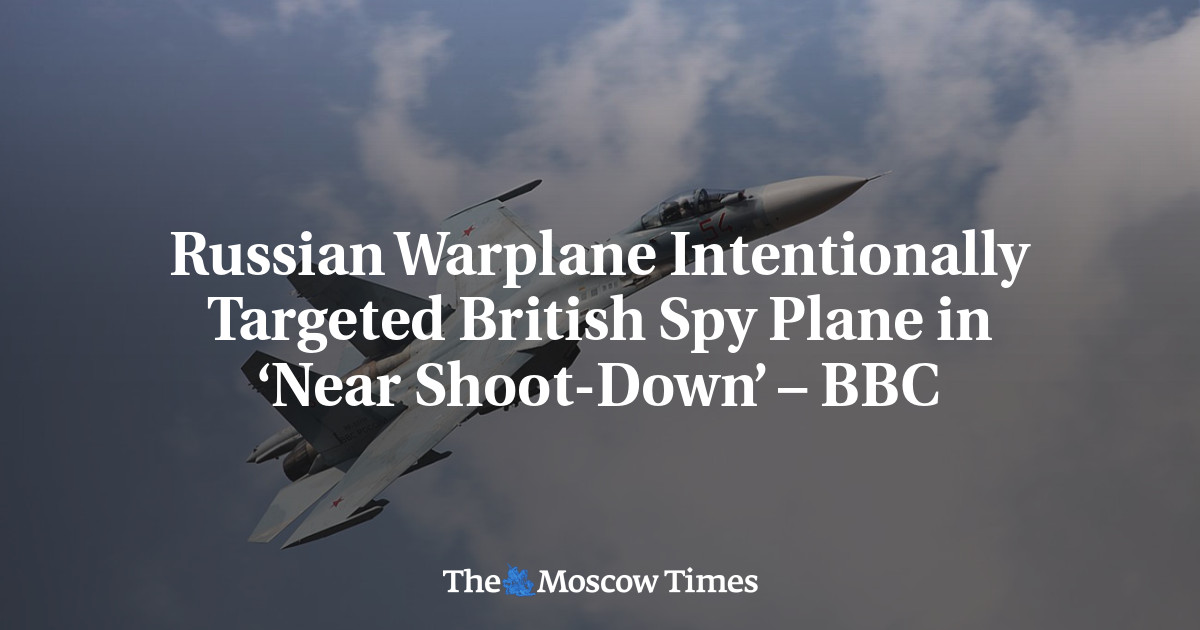
A Russian warplane intentionally fired at a British spy aircraft over the Black Sea last year, the BBC reported Thursday, citing three anonymous Western defense sources with knowledge of the incident.
One of two Russian Su-27 fighters that shadowed an unarmed Royal Air Force RC-135 reconnaissance plane “released” a missile in international airspace off the coast of annexed Crimea on Sept. 29, 2022, Britain’s ex-defense minister said weeks after the incident.
London accepted Moscow’s explanation at the time that the “release” was a technical malfunction, former Defense Minister Ben Wallace said in a statement to the House of Commons.
But the BBC’s new report states that the RC-135 had intercepted communications between the Su-27 fighters and the Russian ground control station, which was said to have given an “ambiguous” command.
“You have the target,” the ground station controller said, according to one of BBC’s sources.
Subsequently, one of the Su-27s fired an air-to-air missile at the British spy aircraft, which the BBC said had failed to lock on to its target.
“It was a miss, not a malfunction,” the broadcaster stressed.
Intercepted communications reportedly showed the second Su-27 pilot swearing at his wingman because he did not believe they had permission to fire.
Still, the first pilot released a second missile, which reportedly “fell from the wing,” indicating either a malfunction or an aborted launch.
Leaked classified materials and two anonymous U.S. defense officials disclosed details of the “misinterpreted” instructions to the New York Times earlier this spring.
Britain’s Defense Ministry, which has refused to release details of the intercepted communications, slammed the NYT report as “untrue, manipulated or both.”
“Our intent has always been to protect the safety of our operations, avoid unnecessary escalation and inform the public and international community,” a British Defense Ministry spokesperson told the BBC in response to the latest revelations.
Russia has not yet commented on the latest report.
The BBC noted that London was reluctant to provide details of the near-miss in order to avoid escalation with Russia and to keep its intelligence-gathering capabilities secret.